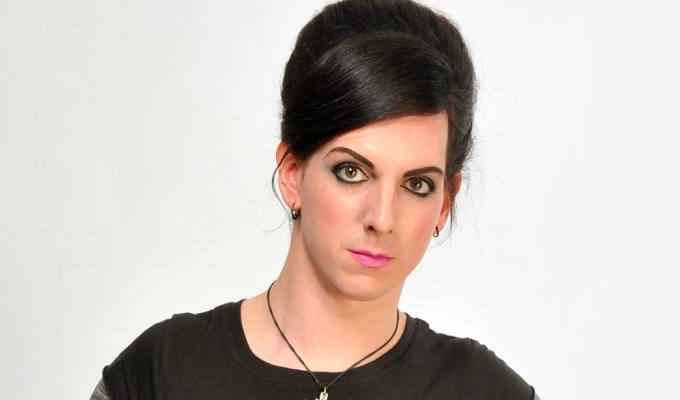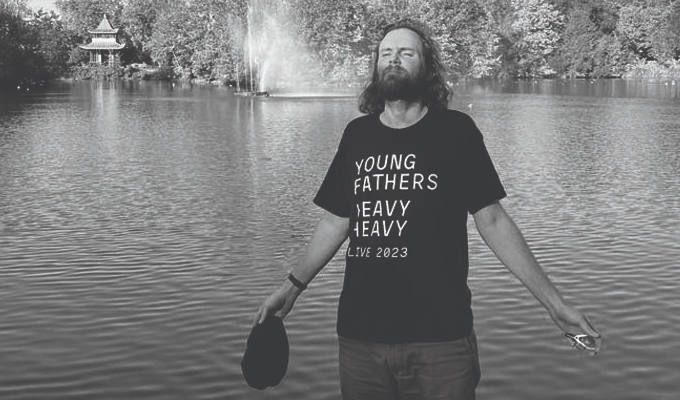
Rhys James: Snitch
Note: This review is from 2019
Edinburgh Fringe review by Jay Richardson
Rhys James hasn't got much to offer in the diversity stakes, barring the look and demeanour of a prison snitch.
So when he was asked to participate in that ever-more popular rite of passage for stand-ups – returning to his school to deliver an inspiring speech – he wanted to appeal to the most marginalised, his people. The small, weedy boys.
You don't have to be a psychologist to see how jokes became the young James's survival tactic, and now how he's weaponised them to berate audiences for not getting on board quickly enough with his humour.
Yet his fink persona also serves to add a sneery, sardonic, even cruel aspect to what are otherwise the commonplace frustrations of a white, middle-class millennial. Moving in with his girlfriend has been a disaster, he mutters, his freedoms impacted. That said, he's looking forward to returning to her after slagging her off to strangers.
Perhaps over-playing his feebleness by suggesting he's too small and weak to drive a car, James argues that his generation is certainly up against it in terms of trying to find somewhere reasonable to live. His girlfriend is the committed enforcer when it comes to keeping their landlord to the terms of their contract. Or is she? Perhaps best not to trust an avowed snitch.
Dipping in and out of the dilemma of whether he'll give the school talk, James suggests that kids need to be taught how social media is spying on them. With the Facebook film The Social Network almost a decade out of date, he imagines himself patiently explaining to his hypothetical child how his generation tossed away their privacy for a few trivial distractions.
Then, for no better reason than he has to fill a lecture with something, as indeed he does a Fringe hour, James offers his grand schema on the human ages of baths and showers. For all that it's crowbarred in, it's a superb tour de force of observational comedy, delivered with punchy, rapid-fire certainty, the sweeping majesty of the theory in bathetic contrast to the everyday bathing it's applied to.
Elsewhere, the sometime poet reflects on the tedious poetaster he might have become, projecting an escalating domestic row out of the twee verse of Northern wordsmiths employed in building society commercials. And he reflects on the new witch-hunt era of documentaries, where infamy comes from featuring in the next must-see Netflix film.
In a similar vein, he decries the cosy, middle-class fascination with true crime, exemplified by the murder-mystery parties he's been forced to sustain a dreadful foreign accent through.
Affording him the chance to try out a rather good Tom Allen impression as the soirée's affable host, James's affected outrage here contrasts sharply with perhaps the only genuine sentiments he expresses in the show: that teenagers aren't just feckless daydreamers without direction, but scrambling to cope with the demands of adulthood for the first time.
And that moreover, having once been a small, weedy boy, that feeling stays with you forever. Snitches for life.
Review date: 21 Aug 2019
Reviewed by: Jay Richardson
Reviewed at:
Pleasance Courtyard









